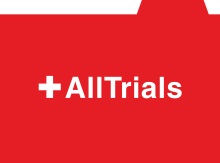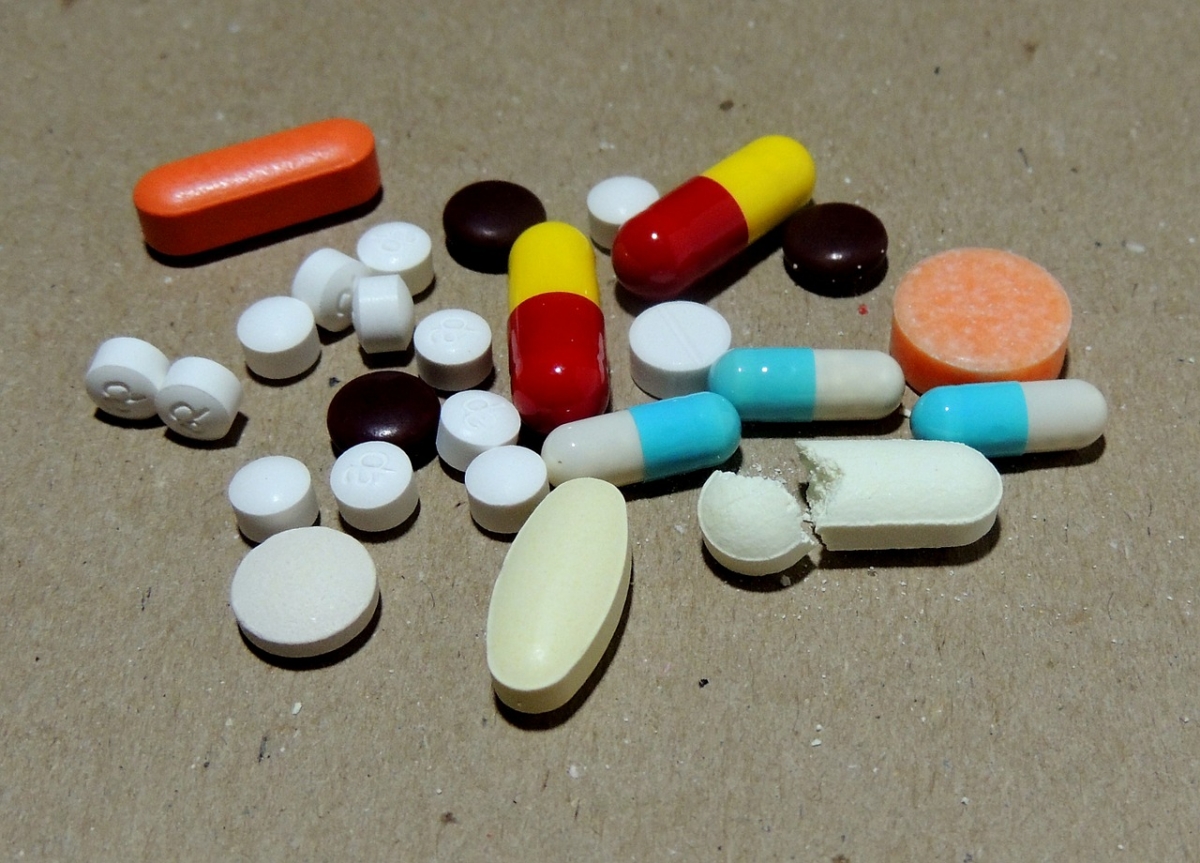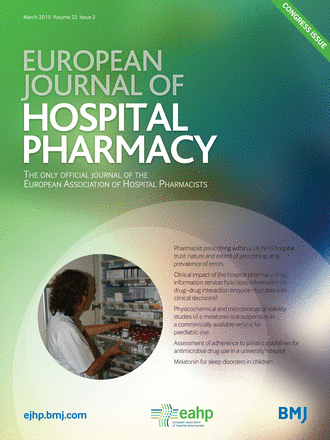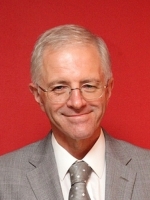EAHP EU Monitor - 27 February 2015
 The EAHP EU Monitor is a regular round up of news relevant to hospital pharmacy in Europe.
The EAHP EU Monitor is a regular round up of news relevant to hospital pharmacy in Europe.You can subscribe to receive the EAHP EU Monitor by email here.
 EAHP Members call for universal use of electronic prescribing across Europe
EAHP Members call for universal use of electronic prescribing across Europe
Ahead of its annual Congress in Hamburg, which is focused on the topic of patient safety, the European Association of Hospital Pharmacists (EAHP) has published a policy statement from its membership that calls for universal application of electronic prescribing across Europe in order to deliver a step change in medication error prevention. The statement also highlights the need for full take up of electronic patient health records and reemphasises the value of bedside scanning practices to reduce medication error at the point of administration in hospitals.
More information here.
 Members of the European Parliament seek EU plan to tackle high prices for medicines
Members of the European Parliament seek EU plan to tackle high prices for medicines
The European Parliament has held its second plenary debate since its election in 2014 on the difficulties patients across Europe are experiencing in accessing high cost drugs.
On 11th February, at a full sitting in Strasbourg, Members of the European Parliament (MEPs) expressed a diversity of opinions on the topic:
- Matthias Groote (S&D, Germany) called for forms of regulation to bring down medicines prices, and strengthened EU cooperation on health technology assessment.
- Beatriz Becerra Basterrechea (ALDE, Spain) considered that since the EU had regulated for price caps on mobile phone roaming charges, could not similar regulation be introduced in the area of medicines prices.
- Soledad Cabezón Ruiz (S&D, Spain) called for an improved remit for the European Medicines Agency in such areas.
- Biljana Borzan (S&D, Croatia) and Eva Kaili (S&D, Greece) called for shorter patent periods on medicines.
- Elisabetta Gardini (EPP, Italy) called for the European Medicines Agency (EMA) to be able to embed economic evaluations on new drugs within the process of authorisation of new medicines.
- Cristian Busoi (EPP, Romania) also supported a cost-benefit analysis of new treatments performed at centralised level by the EMA
Responding to the concerns raised by MEPs, the European Commission pointed out its lack of legal competence under EU law to regulate medicines pricing. However, the Commission highlighted that it had recently constructed an 'Expert Group on Safe and Timely Access to Medicines for Patients' (STAMP) with the remit to "examine national initiatives and identify ways to use more effectively the existing regulatory tools under EU pharmaceutical legislation with the aim to foster innovation and further facilitate safe and timely access to innovative medicines."
The Commission also pointed to its development of a joint procurement agreement to enable EU member states to purchase medicines in partnership with each other.
Further commentary on the MEP contributions and Commission response available here and here.
Pricing and reimbursement of medicines is likely to figure strongly in forthcoming EU Member State discussion via the EPSCO Council of EU Health Ministers.
EAHP respond to European Medicines Agency consultation on the future EU clinical trials database

EAHP has responded to an EMA consultation on the functional specifications of the future EU clinical trials database brought about by the 2014 clinical trials regulation. In its response EAHP called for:
- Member state expert, trial sponsor staff and investigator site information to be made available in the database;
- Any system of permitting deferred publication of trial information to be proportionate and subject to audit;
- IMPD-Q data to be public by default; and,
- Further clarification on the assessment criteria to be used by the Agency in defining what information will be considered commercially confidential
The EAHP response is available here.
The response of the Alltrials campaign is available here.
Further information about the consultation is available here.
Readers of the EAHP EU Monitor interested in supporting the achievement of greater transparency in clinical trial reporting are encouraged to:
- add their signature to the AllTrials campaign here;
- encourage organisations they are affiliated or connected with to support the campaign here; and,
- consider making a response to the current NIH consultation on the topic here.
 New Falsified Medicines Directive organisation is launched
New Falsified Medicines Directive organisation is launched
5 pan-European medicines supply chain organisations have collaborated to form a new organisation, the European Medicines Verification Organisation (EMVO), that will take as its role overseeing the implementation of the European Medicines Verification System (EMVS) for medicines verification across Europe.
The 2011 Falsified Medicines Directive requires that all medicines in Europe contain a unique identifier on the outer packaging to enable verification by pharmacists of the medicines' authenticity at the end of the supply chain. The European Commission has confirmed that medicines in hospitals must also be scanned for verification. The Directive's verification requirements must be implemented by EU member states by 2018. The European Commission will be publishing a 'Delegated Act' later in 2015 setting out the detailed implementation rules. The Delegated Act is being developed via confidential negotiations between the European Commission and Member State governments.
In the meantime, the EMVS has been developed by 5 pan-European medicines supply chain stakeholder organisations as a system for implementing the Directive's verification requirements. The organisations are:
- EAEPC, the European Association of Euro-Pharmaceutical Companies;
- EFPIA, the European Federation of Pharmaceutical Industries and Associations;
- EGA, the European Generic and Biosimilar medicines Association;
- GIRP, the European Association of Pharmaceutical Full-line Wholesalers; and,
- PGEU, the Pharmaceutical Group of the European Union
The EMVS will be governed by the European Medicines Verification Organisation (EMVO), a not-for-profit organisation based in Luxembourg. The EMVO's function will reinforce the value of the European Stakeholder Model, which allows end-to end verification of individual medicines packs, firstly at the point of manufacture, through to the point of dispensation to the patient, thereby guaranteeing continuity of protection throughout the entire supply chain. The system calls for the manufacturer to apply an internationally recognized 2D barcode to the product – void of individual patient/prescribing profile information – which is then scanned by the pharmacist before a product is handed to the patient. Any unverified codes will flag an alert to the national verification system that may then be expedited to the European hub. In each case, appropriate safeguarding action may be undertaken. It will also assume responsibility for the European Hub, which links national verification systems throughout Europe and serves as the central point from which product recall actions can be initiated.
Germany will be the first EU Member State to contribute fully to the improved Europe-wide verification system under the auspices of EMVO, through its securPharm system. Meanwhile, EMVO are inviting other EU countries to join its established product verification infrastructure, referred to as the national Blueprint System Template (nBPS).
The Falsified Medicines Directive, and its impact for hospitals, will be discussed at an EAHP Members' Meeting in Hamburg on 24th March 2014 to which the European Stakeholder Model has been invited.
More information on the EMVO launch here.
More information about the Falsified Medicines Directive here.
______________________________________________________________________________________________
 EJHP: Pharmacist assessment of drug-related problems on an oncology ward
EJHP: Pharmacist assessment of drug-related problems on an oncology ward
_________________________________________________________________________
 Congress Preview: Dr David Cousins on developing a safety culture
Congress Preview: Dr David Cousins on developing a safety culture
Dr Cousins has been researching and publishing on medication error prevention since 1990 and is the author of national guidance on safe medication practice for primary, secondary and tertiary healthcare providers and pharmaceutical and the medical devices industry in the UK.
His keynote speech will give a focus to the National Reporting and Learning System (the NRLS) introduced into the UK NHS in 2005. The system receives reports of patient safety incidents where a patient was harmed or there was a potential for harm and national learning from these reports is communicated via Patient Safety Alerts. The keynote will also reflect on the relevance for medication error reporting from the revised EU directive on Pharmacovigilance.
Dr Cousins is a graduate and postgraduate of the School of Pharmacy, University of London. He completed his doctorate on quality systems for a clinical pharmacy in a district general hospital with the Welsh School of Pharmacy, Cardiff. He is a visiting professor of Pharmacy Practice at the University of Derby. He was Chief Pharmacist in Southern Derbyshire Acute Hospitals Trust between 1983 and 2002.
More information on Dr David Cousins' keynote speech here.
______________________________________________________________________________________________




